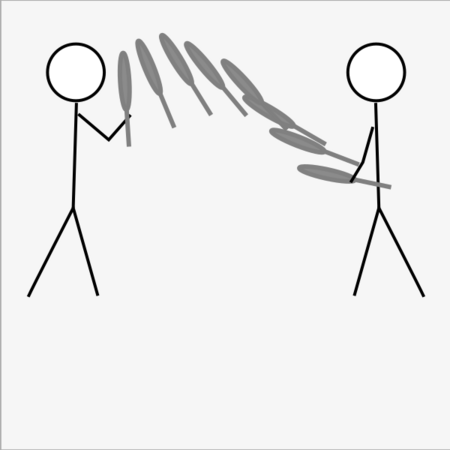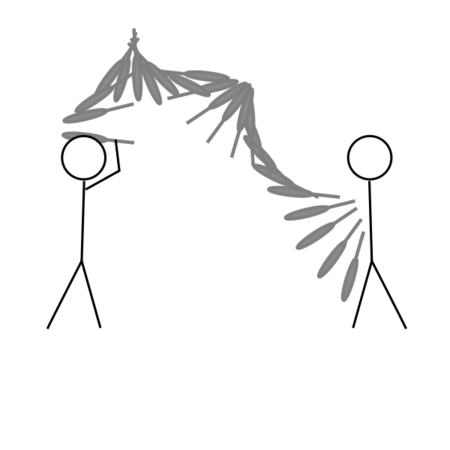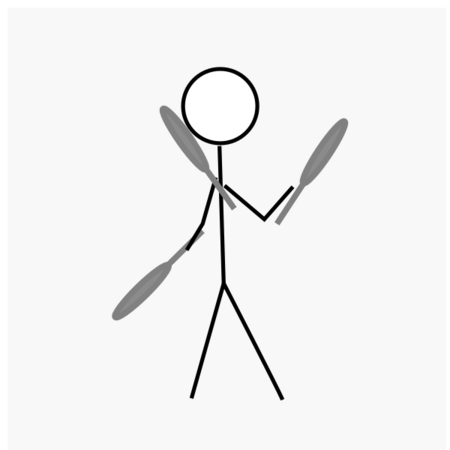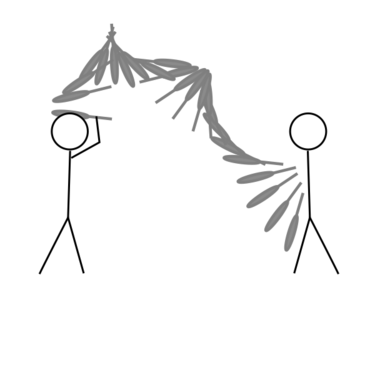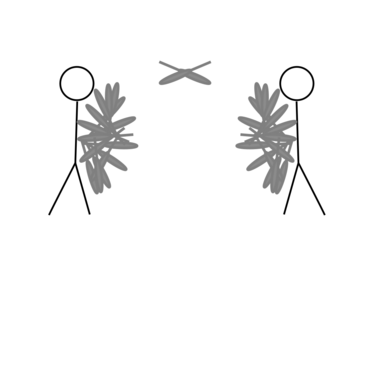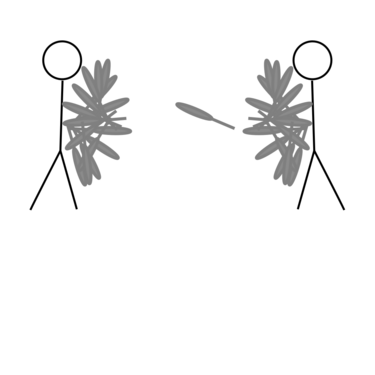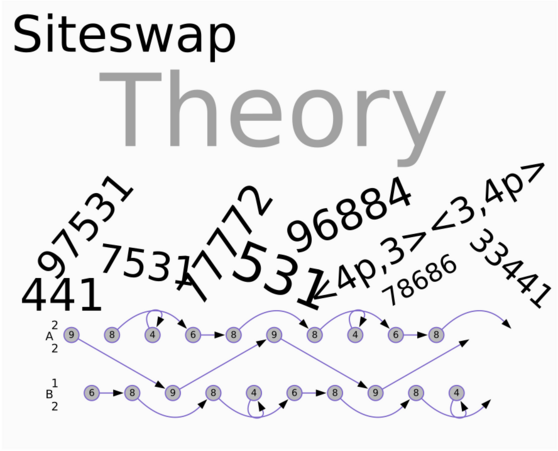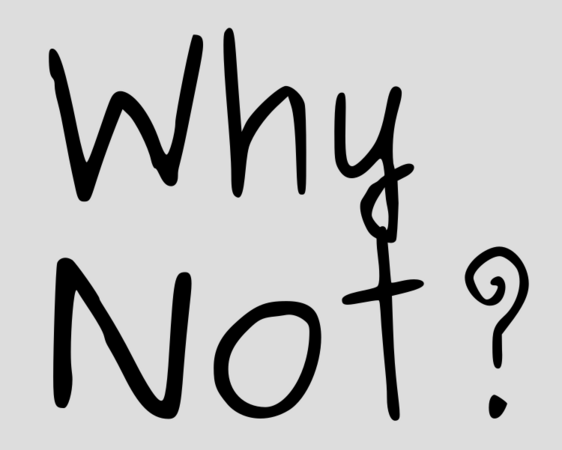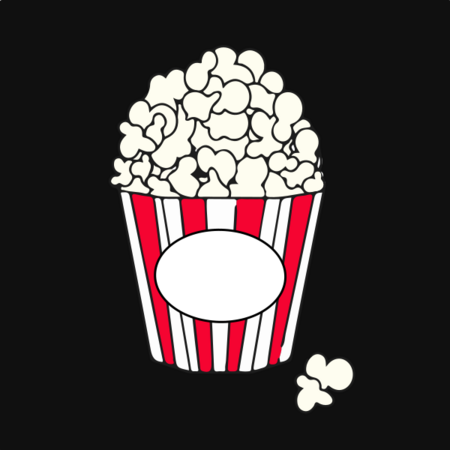Main Page: Difference between revisions
No edit summary |
|||
| (93 intermediate revisions by 3 users not shown) | |||
| Line 1: | Line 1: | ||
The goal of this wiki is to provide a collection of juggling patterns, organized into "learning paths" that contain patterns of increasing difficulty. |
|||
The goal of this wiki is to offer "learning paths", which begin with simple juggling patterns and then for each pattern offer a few similar patterns with increasing difficulty. There are different types - "dimensions" of difficulty, so there is more than one starting point for each type of throw. Entry points with no/little experience all start with "Beginning with" |
|||
The schema below tries to start with different patterns that (mostly) use only one throw type. Only when that throw has been practiced in different patterns, mix the trow with one or several different throw types is introduced. |
|||
The wiki tries to answer the question: |
|||
Within each section, difficulty increases (sometimes a lot) as you proceed in the section. |
|||
<center><b>"What should I try learning next?"</b></center> |
|||
and also: |
|||
<center><b>"I want to learn this (for me right now difficult) pattern, how do I get there"</b></center> |
|||
<!-- == Theory == |
|||
a.k.a "what do all the numbers mean" |
|||
There are many other juggling resources, but most of them do either provide no difficulty rating - or neglegt that there is more than one type of difficulty that a juggling pattern can have. Here, I tried to group patterns with common traits and also a common set of difficulty-types. |
|||
Most patterns can be described best by a juggling math called [[Siteswap]], and from that it is possible to do animations and tell passers what they have to do and how they have to start the pattern. You don't need to know how this works to juggle the patterns, but you will constantly see traces of the theory being used throughout the pages and at some point understanding will be helpful. This is described here: |
|||
Entry points are provided for each type of throw, as each kind of throw needs a different throwing technique. |
|||
* Entry point [[Siteswap]] |
|||
--> |
|||
These entry points are labeled as "Beginning with [...]" and primarily focus on building proficiency with a single throw type before progressing to more complex patterns that incorporate multiple throw types. |
|||
== Before All Else == |
|||
<!-- |
|||
== Before All Else (TODO) == |
|||
* [[ 3 ball cascade]] |
* [[ 3 ball cascade]] |
||
* [[ First Tricks with 3 balls]] |
* [[ First Tricks with 3 balls]] |
||
--> |
|||
== Entry Patterns == |
|||
== Beginning Zaps // Candlestick throws == |
|||
[[image:one-zap2.png|thumb|upright=0.5]] |
|||
These patterns are suitable for beginners. It helps a lot if one juggler is more experienced. All patterns only use one throw type (on the beginner side). Note that being suitable for beginners does not in all cases mean that these patterns are easy if you already have experience passing clubs. |
|||
It is not necessary to be able to juggle 3 clubs alone. If thrown as described, they are easier for people not experienced with clubs than passes. |
|||
* [[ Throwing first Zaps ]] |
|||
* [[ zap zap zip ]] |
|||
* [[ 5-club 1-count with zaps ]] |
|||
<gallery heights=300px widths=300px mode="packed-overlay"> <!--mode="packed-hover"--> |
|||
== Beginning Normal Passes == |
|||
image:one-zap2.svg | link=Beginning Zaps | <font size=+1> Beginning Zaps</font> |
|||
Passes are probably easier than selfs for several reasons. |
|||
image:one-pass-notext.svg | link=Beginning Single Passes | <font size=+1> Beginning Single Passes</font> |
|||
image:selfs.svg | link=Juggling 3 Objects Alone | <font size=+1> Juggling 3 Objects Alone</font> |
|||
</gallery> |
|||
== Single-Passes // Zaps == |
|||
Teaching people passing clubs: |
|||
<gallery heights=250px widths=350px mode="packed-overlay" align="left"> <!--mode="packed-hover"--> |
|||
For the pattern labeled as "assymetric", one of passer is supposed to be far more advanced than the other, who needs no previous experience. |
|||
image:one-pass-notext.svg | link=Selfless Passing|<font size=+1> Selfless Passing<br> 4 to 7 clubs </font> |
|||
image:N-count.svg | link=Selfs and Passes|<font size=+1> Selfs and Passes</font> |
|||
image:N-count-zaps.svg | link=Selfs and Zaps|<font size=+1> Selfs and Zaps</font> |
|||
[[image:throwing-a-pass.png|thumb|upright=0.5]] |
|||
image:zapnips.svg | link=Zapnips (Zaps on Parsnips) | <font size=+1> Zaps on Parsnip </font> (Passes + Zaps) |
|||
It is not necessary to be able to juggle 3 clubs alone (for the "beginner" side of the patterns when assymetric) |
|||
</gallery> |
|||
== Theory == |
|||
* [[ Throwing the first normal passes ]] |
|||
<gallery heights=300px widths=300px mode="packed-overlay"> <!--mode="packed-hover"--> |
|||
image:Theory.svg | link=Siteswap | <font size=+1> Siteswap - Juggling Math |
|||
</gallery> |
|||
* [[ Assymetric n-count vs 1-count ]] |
|||
* [[ 5-club 1-count ]] |
|||
* [[ 720 - zip-pass ]] |
|||
== Double Passes== |
|||
Next steps: "Selfless Passing" or "Selfs and Passes" |
|||
<gallery heights=300px widths=300px mode="packed-overlay"> <!--mode="packed-hover"--> |
|||
image:7-club-2-count.svg | link=Double Passes | <font size=+1> Double Passes |
|||
</gallery> |
|||
== |
== Heffs (Double Selfs) == |
||
<gallery heights=300px widths=300px mode="packed-overlay"> <!--mode="packed-hover"--> |
|||
* [[ Throwing one club]] |
|||
image:why-not.svg | link=Why-Not Family |<font size=+1> Why-Not Family </font> |
|||
* [[2 balls and one club]] |
|||
image:popcorn.svg | link=Popcorn Family |<font size=+1>The Popcorn Family<br>(7clubs w heffs)</font> |
|||
* [[holding 2 clubs in one hand]] |
|||
</gallery> |
|||
* [[ 3 club cascade]] |
|||
<!-- == Holy Grail == |
|||
== "Selfless Passing" (Zips and Passes) == |
|||
Ok, I included this too early, because it was such a good story, although I hadn't progressed there myself. |
|||
* [[ inverted parsnip ]] - 4 clubs - PZZPZ |
|||
The Patterns I collected aren't so good trainings patterns, as we figured out when trying ourselves because in period 5, the double passes trigger each other, which makes the patterns unstable more quickly, as any bad double pass leads to another bad double pass and onto a downward spiral |
|||
* [[ parsnip ]] - 5 clubs - PPZPZ |
|||
<gallery heights=300px widths=400px mode="packed-overlay"> <!--mode="packed-hover"--> |
|||
* [[the ugly brother of parsnip - 5 clubs - PPPZZ]] |
|||
image:DragonsGrail.jpg | link=Quest for the Holy Grail|<font size=+1>Quest for the Holy Grail<br>(zaps+double passes)</font> |
|||
* [[ PPPPZ ]] - 6 clubs |
|||
</gallery> |
|||
* [[ 7-club 1-count ]] |
|||
--> |
|||
== Other Juggling Resources == |
|||
== Training Patterns Selfs and any kind of pass (zap, single pass, double pass) == |
|||
[[Other Juggling Resources]] |
|||
* [[ 5-club 4-count]] |
|||
* [[ 5-club 3-count]] |
|||
* [[ 5-club 2-count ]] |
|||
== |
== Unfinished == |
||
[[Todo]] main page overview of unwritten pages |
|||
[[5-club 2-counts with zaps]] |
|||
Asyncronous patterns resembling n-count for each juggler. One side throws passes, the other throws zaps. These are probably just weird and not very nice. |
|||
* [[ 4-count zaps vs passes - 75666666 ]] |
|||
* [[ 3-count zaps vs passes - 756666 ]] |
|||
* [[ 2-count zaps vs passes - 7566]] |
|||
This is a good "real" start into patterns with zaps and selfs, because the zip-self can just be substituted with doing nothing. |
|||
* [[zap-self-zip-self-self 56662]] |
|||
* [[75666 pass,self,self,zap,self]] |
|||
* [[7566666 pass,self,self,self,zap,self,self]] |
|||
== Single Passes and Selfs == |
|||
'''6 club Half-Synchronous patterns''' (right hand of both jugglers throws at the same time), a.k.a "normal passing": |
|||
* [[6-club 4-count]] |
|||
* [[6-club 3-count]] |
|||
* [[6-club 2-count]] |
|||
* [[6-club 1-count]] |
|||
* [[6-club PPS - Pass Pass Self ]] |
|||
* [[6-club Chocolate bar - PPSS]] |
|||
* [[6-club Vanilla bar - PSSP]] |
|||
"Jim's" version of those patterns: |
|||
* [[6-club Jim's 4-count]] |
|||
* [[6-club Jim's 3-count]] |
|||
* [[6-club Jim's 2-count - 77466]] |
|||
* [[6-club Jim's 1-count]] |
|||
* [[6-club Jim's PPS]] |
|||
== Double Passes == |
|||
* [[early double]] - in 4-count, 3-count, 2-count, etc? |
|||
* [[late double]] - in 4-count, 3-count, 2-count |
|||
* [[ Throwing the first double passes ]] - self-pass |
|||
* 96622 - dpass self zip self zip |
|||
== Heffs in Solo Patterns - 4 club exercises == |
|||
Recommended solo-patterns before you start: |
|||
* [[solo 423]] |
|||
* [[solo 40]] - two clubs in one hand with doubles |
|||
* [[solo 441]] |
|||
* [[solo 4 clubs with doubles]] |
|||
== [[Heff]]s in Passing Patterns == |
|||
Tricks, typically done in 4-count, 3-count, etc. |
|||
* [[441 heff,heff,zip in 4-count]] |
|||
* [[heff,hold in 3-count]] |
|||
* [[heff,hold in 4-count]] |
|||
* [[heff,zap in 4-count]] |
|||
First patterns with a heff - 5 club why nots |
|||
* [[5c why-not]] |
|||
* [[5c not-why]] |
|||
The why not family - 6 clubs: |
|||
* [[Why not]] |
|||
* [[Not why]] |
|||
* [[Maybe]] |
|||
* [[Not likely]] |
|||
* [[Only Sunday with good weather]] |
|||
7 club why nots: |
|||
* [[7 club why-not 9968926]] |
|||
* [[7 club not-why 9689962]] |
|||
== Double Selfs in Solo Patterns // Learning the 5 Ball Cascade == |
|||
The "normal" 5 club cascade is juggled with double selfs. Usually long before that you learn to juggle 5 balls. |
|||
The patterns for practicing double selfs and for preparing you for each 5-object pattern are mostly the same. |
|||
* [[Shower 51]] |
|||
* [[Snake 505050]] |
|||
* [[Solo 552]] |
|||
* [[Solo 5551]] |
|||
* [[Solo 55550]] |
|||
== Triple Selfs in Solo Patterns == |
|||
*[[solo 531]] |
|||
*[[solo 534]] |
|||
== Popcorns (Heffs or Triple selfs) == |
|||
* [[6-count popcorn]] |
|||
* [[5-count popcorn - 78686]] |
|||
* [[sync 5-count popcorn]] |
|||
== Doubles vs Passes == |
|||
* [[ Dpass,Self vs. Pass,Zip - 7926 ]] |
|||
* [[DP DP Z DP ZZ vs. P Z Z P P Z - 979222972722]] |
|||
* [[DP DP DP DP DP DP Z vs. P P Z P P P]] |
|||
== Here Be Dragons - The Quest for the Holy Grail == |
|||
A dragon is a double pass followed by a zap. They both arrive at the same hand, the zap first. |
|||
* [[92522]] |
|||
* [[baby dragon 756]] |
|||
* [[dragon - black beast of aaaarg - 945]] |
|||
* [[dragon cat - 95524]] |
|||
* [[97522]] |
|||
* [[Holy Grail - 975]] |
|||
<!-- |
|||
The purpose of this wiki is to help you find the 1-3 new juggling patterns or tricks, that you want to try next. There are many resources on juggling patterns available on the net, but I often found myself overwhelmed by a long list of patterns of varying difficulty without a clear indicator on what single pattern to try out. |
|||
== Difficulty == |
|||
There is often no clear difficulty comparison between two patterns, because there is more than one type of difficulty in juggling. One can imagine them as difficulty dimensions - like axes on a coordinate system. A pattern can be easier than another one on one axis, but more difficult on another. |
|||
Types of difficulties include: |
|||
* height of throws |
|||
** number of high throws |
|||
** difference in height between highest and lowest throw |
|||
* length and/or complexity of sequence |
|||
Things that push your level back towards beginner: |
|||
* different object to juggle (ball vs club vs ring) |
|||
* different type of throws (crossed arms/mills mess, body throws in pattern) |
|||
== 1 Juggler == |
|||
[[learning the 3 ball cascade]] |
|||
[[first steps after 3 ball cascade]] |
|||
[[goal 4 ball fountain]] |
|||
[[goal 5 ball cascade]] |
|||
== 2 Jugglers == |
|||
* [[goal 7 club 1-count]]: parsnip series |
|||
* [[why nots]] |
|||
* [[ half-synchronous n-counts ]] 4 count and friends |
|||
* [[list of asymmetric passing patterns]] patterns with different difficulty for both passers |
|||
== 3 Jugglers == |
|||
== 4 Jugglers == |
|||
== 5 Jugglers == |
|||
== 6 Jugglers == |
|||
== N Jugglers == |
|||
--> |
|||
Latest revision as of 09:55, 25 October 2024
The goal of this wiki is to provide a collection of juggling patterns, organized into "learning paths" that contain patterns of increasing difficulty.
The wiki tries to answer the question:
and also:
There are many other juggling resources, but most of them do either provide no difficulty rating - or neglegt that there is more than one type of difficulty that a juggling pattern can have. Here, I tried to group patterns with common traits and also a common set of difficulty-types.
Entry points are provided for each type of throw, as each kind of throw needs a different throwing technique.
These entry points are labeled as "Beginning with [...]" and primarily focus on building proficiency with a single throw type before progressing to more complex patterns that incorporate multiple throw types.
Entry Patterns
These patterns are suitable for beginners. It helps a lot if one juggler is more experienced. All patterns only use one throw type (on the beginner side). Note that being suitable for beginners does not in all cases mean that these patterns are easy if you already have experience passing clubs.
Single-Passes // Zaps
Theory
Double Passes
Heffs (Double Selfs)
image:DragonsGrail.jpg | link=Quest for the Holy Grail|Quest for the Holy Grail
(zaps+double passes)
</gallery>
-->
Other Juggling Resources
Unfinished
Todo main page overview of unwritten pages
